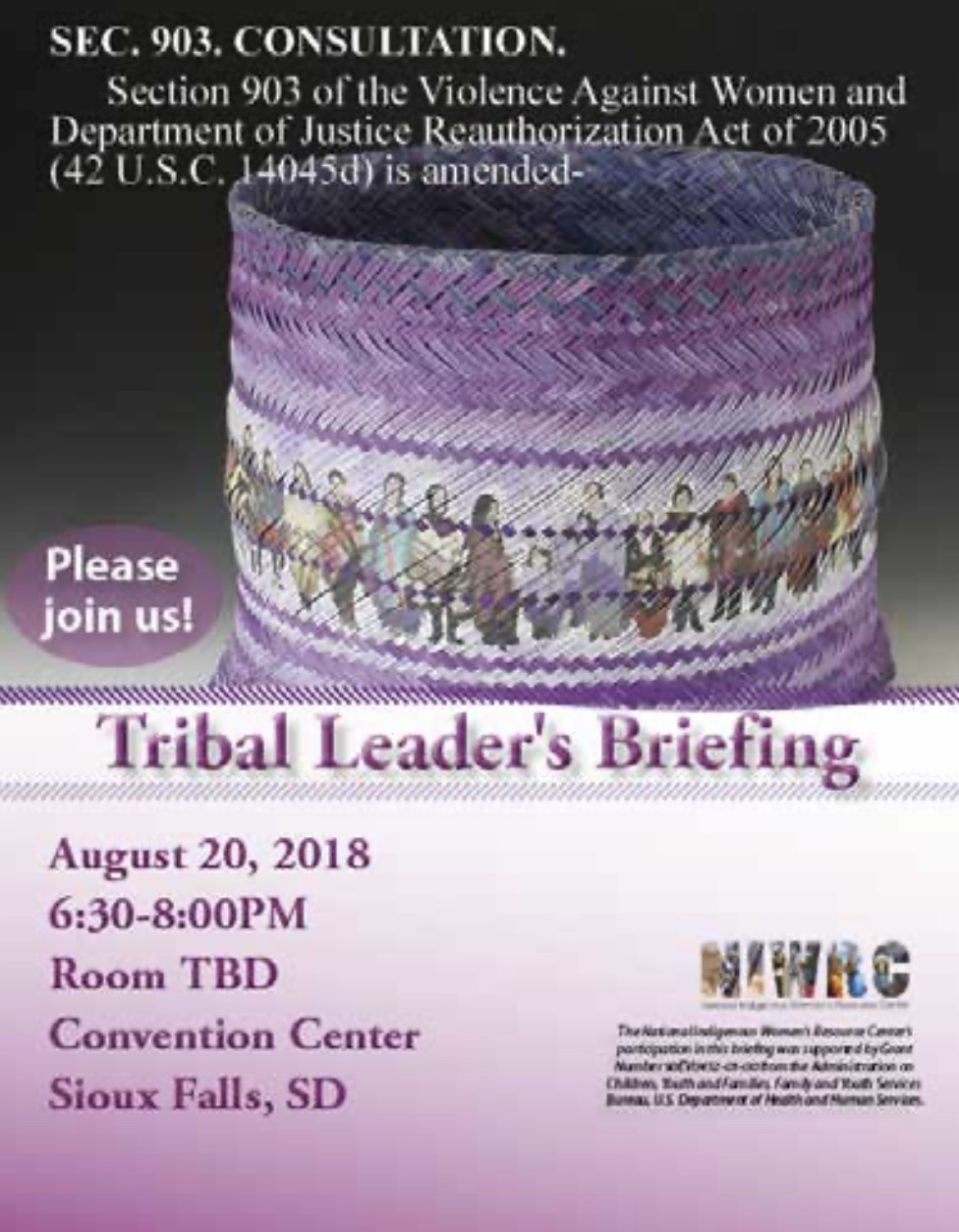Tribal Preparation the Essential Link for Consultation
In preparation for each of the annual consultations, the NCAI Task Force has assisted Indian tribes in preparing for the annual consultation. The Task Force organizes a national webinar to summarize key national concerns and emerging issues for tribal leaders to consider in their preparation. It also coordinates a preparatory caucus for tribal leaders and representatives during which tribal leaders receive a briefing of priority issues and time to discuss their specific concerns and recommendations for the consultation the following day. This year the tribal leaders briefing and caucus will be held Monday, August 20, 6:30-8 PM, at the consultation host hotel in Sioux Falls, South Dakota. Following each caucus, a list of the concerns and recommendations summarizing the priority issues is developed and provided to OVW as NCAI’s formal written statement.
Like this current Restoration for many years, the National Indigenous Women’s Resource Center in partnership with the Task Force includes a draft statement of the priority issues for the annual consultation. This section is intended to provide a review of the tribal provisions contained in the Tribal Title, other federal statutes, and previous concerns and recommendations made by tribal leaders addressing the three statutory areas identified for consultation.
The Federal Response to the VAWA 2005 Consultation Mandate
Since 2009, the consultation process organized by OVW has improved each year with issuance of the required consultation report to Congress and also made available online. 1 The pre-consultation process to determine date, location, and consultation issues now occurs regularly. The annual consultation established under the VAWA 2005 is now institutionalized and provides a process to annually review and monitor critical issues concerning the safety of Native women. OVW over the last 12 years has consistently coordinated the annual consultation and this process has resulted in annually identifying the most urgent concerns and recommendations many of which have been addressed by Congress as amendments to federal law or federal departmental or agencies policy changes.
To improve the consultation process tribal leaders have also raised consistently that the annual consultation
is a government-to-government dialogue and a time for presentations by tribal leaders of the concerns and recommendations of their respective nations regarding the three broad categories stated under the statute. The concerns previously raised have included the following:
- Consultation is not the time for federal presentations designed to provide training and education.
- Framing papers developed by the federal agencies seeking response from tribal leaders should be distributed no less than one month prior to the consultation if not sooner.
- The consultation agenda should reflect a government-to-government relationship and should not be open to public comment or dialogue.
The consultation statute mandates the Attorney General, Secretary of HHS, and DOI attend the consultation, and in 2017, top leadership of these Departments did not attend the consultation.

1. U.S. Department of Justice, Office on Violence Against Women Tribal Consultation Reports:
2013 report: http://www.justice.gov/sites/default/files/pages/attachments/2014/08/15/2013ovw-tc-report.pdf
2012 report: http://www.justice.gov/sites/default/files/ovw/legacy/2013/06/05/2012ovw-tc-report.pdf
2011 report: http://www.justice.gov/sites/default/files/ovw/legacy/2012/11/28/2011-tribal-consultation-report.pdf
2010 report: http://www.justice.gov/sites/default/files/ovw/legacy/2012/10/25/2010-tribal-consultation-report.pdf.
2009 report: http://www.justice.gov/sites/default/files/ovw/legacy/2012/11/28/2009-tribal-consultation-report.pdf





